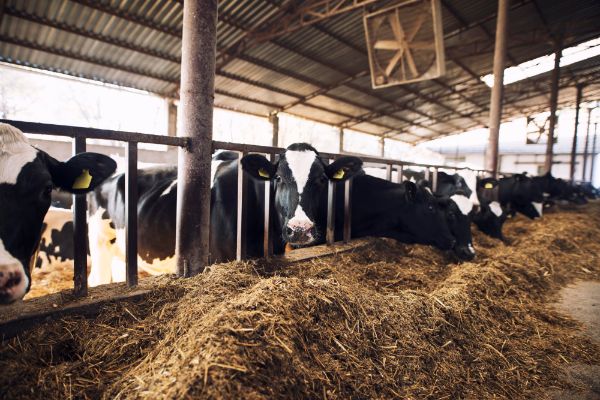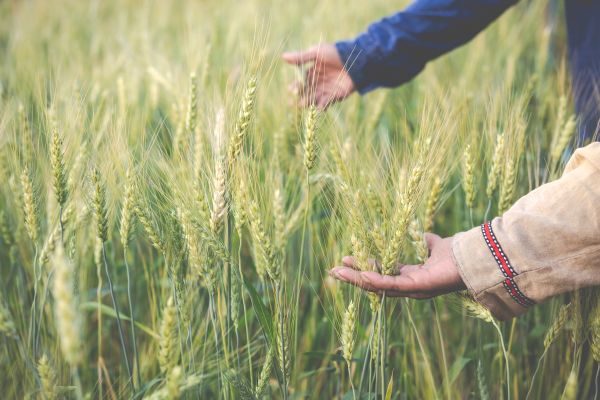The gap isn't quite a century. But it still sounds historic - the lowest US winter wheat plantings since 1913, the year that stainless steel was invented and the first crossword published.
The shame is that, for crop price optimists, the collapse in sowings doesn't provide much to celebrate.
It doesn't make wheat look much more attractive, and makes corn and soybeans appear considerably less so.
Sure, the drop in sowings - largely a knock-on effect of late corn and soybean harvests tying up fields designated for wheat - will go some way to cutting the huge surplus of the grain.
Assuming 82% of the sown wheat acres are harvested at a yield of 44.3 bushels per acre - the three-year averages on both scores - then the winter-planted crop would produce about 1.35bn bushels.
That's 175m bushels, or 4.8m tonnes, short of production from winter wheat harvested last year.
In the context of a 195m-tonne global wheat mountain, that decline barely registers as a foothill.
The collapse in America's sowings may prove a landmark on the road to a significant change in the market's supply-and-demand dynamics, but it's not a destination in itself.
Farmers' alternative
It's no help at all to corn or soybeans.
Imagine the lost 6.21m winter wheat acres were planted with soybeans. Plug in America's three-year average soybean harvesting rate and yield data, and that area would produce an extra 260 bushels, or 7.1m tonnes.
That's enough to raise world inventories by more than 10% and, other things being equal, lift the global stocks-to-use ratio by more than three percentage points.
For corn, the implications are more dramatic. Planting all the spare acres with corn would produce an extra 970m bushels, or 25m tonnes, of the grain.
If this land were a nation on its own, it would rank as the third-biggest corn-producing country, after the US and Brazil, according Agrimoney.com
The shame is that, for crop price optimists, the collapse in sowings doesn't provide much to celebrate.
It doesn't make wheat look much more attractive, and makes corn and soybeans appear considerably less so.
Exclusiv - beneficiati acum de Oferta Speciala de mai jos:
Cultura de sofran
Afla acum tot ce trebuie sa stii despre cultura de sofran - "aurul rosu" Iti propunem afacerea anului cultura de sofran De ce tocmai sofran Pentru ca Sofranul Crocus stativus furnizeaza cel mai scump condiment din lume Si nu numai Este si cel mai scump aliment mai scump decat caviarul carnea de vita Kobe sau otetul...
Oferta Speciala
valabila 48h
valabila 48h
Sure, the drop in sowings - largely a knock-on effect of late corn and soybean harvests tying up fields designated for wheat - will go some way to cutting the huge surplus of the grain.
Assuming 82% of the sown wheat acres are harvested at a yield of 44.3 bushels per acre - the three-year averages on both scores - then the winter-planted crop would produce about 1.35bn bushels.
That's 175m bushels, or 4.8m tonnes, short of production from winter wheat harvested last year.
In the context of a 195m-tonne global wheat mountain, that decline barely registers as a foothill.
The collapse in America's sowings may prove a landmark on the road to a significant change in the market's supply-and-demand dynamics, but it's not a destination in itself.
Farmers' alternative
It's no help at all to corn or soybeans.
Imagine the lost 6.21m winter wheat acres were planted with soybeans. Plug in America's three-year average soybean harvesting rate and yield data, and that area would produce an extra 260 bushels, or 7.1m tonnes.
That's enough to raise world inventories by more than 10% and, other things being equal, lift the global stocks-to-use ratio by more than three percentage points.
For corn, the implications are more dramatic. Planting all the spare acres with corn would produce an extra 970m bushels, or 25m tonnes, of the grain.
If this land were a nation on its own, it would rank as the third-biggest corn-producing country, after the US and Brazil, according Agrimoney.com
Autor: AgroRomania.ro
Votati articolul
Nota: 5 din 1 voturi
Urmareste-ne pe Google News


















